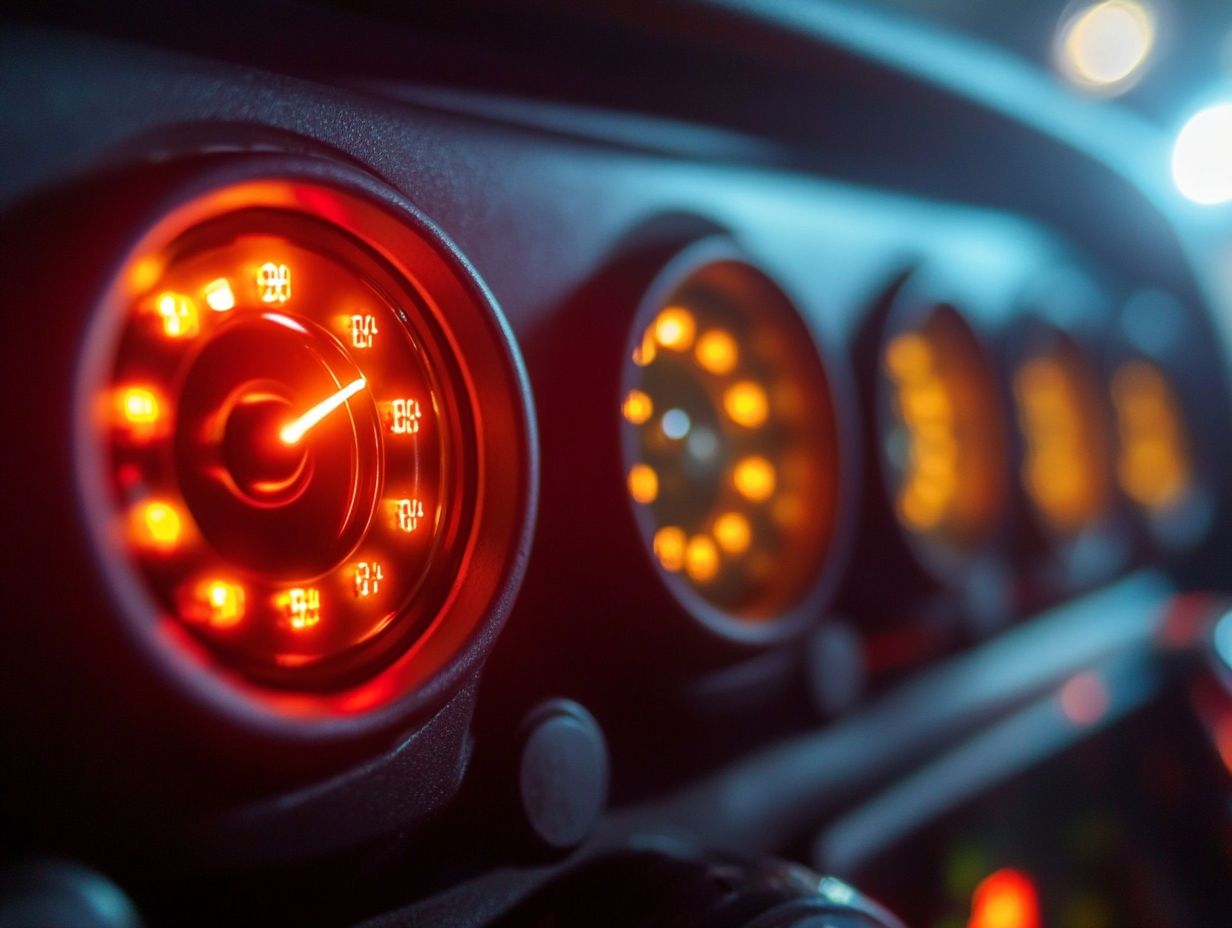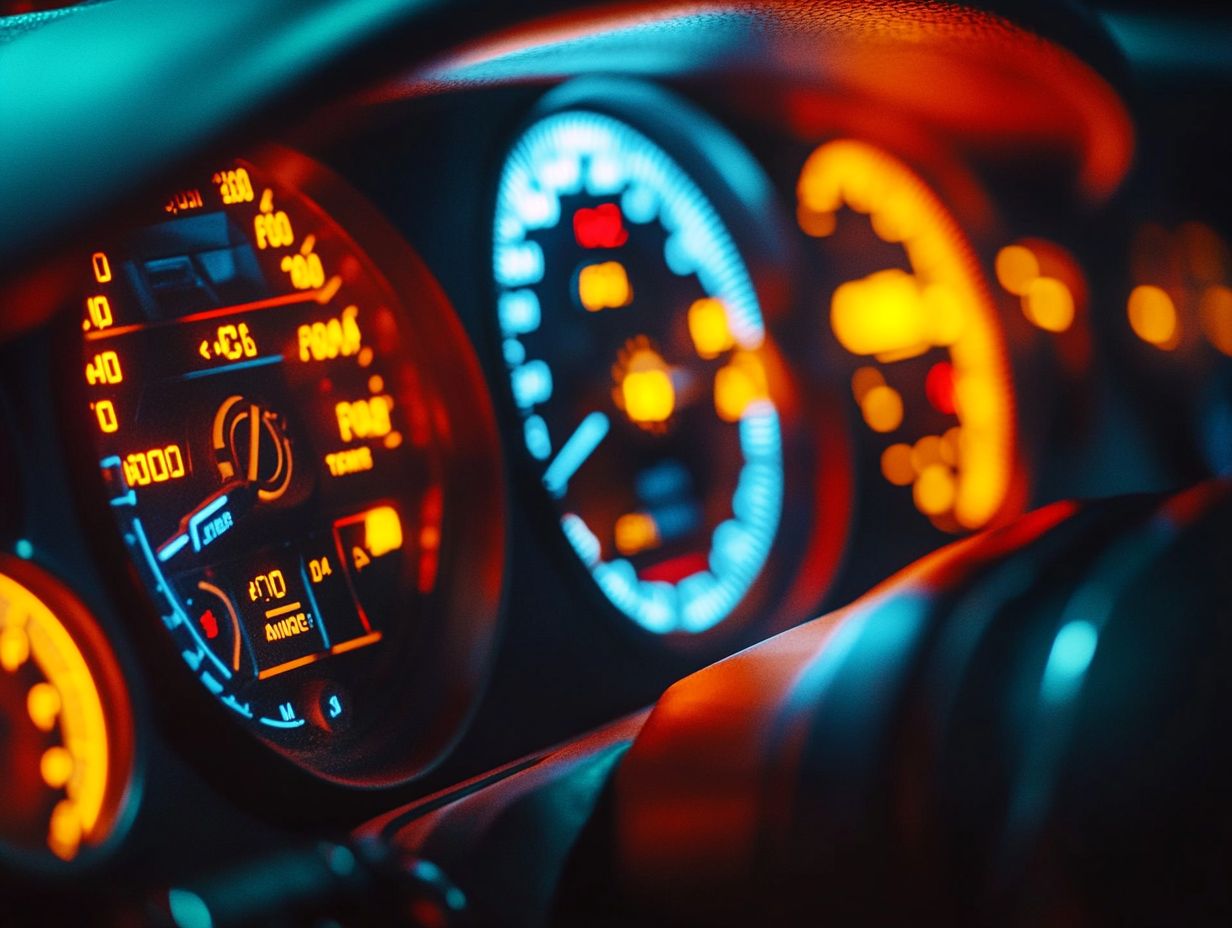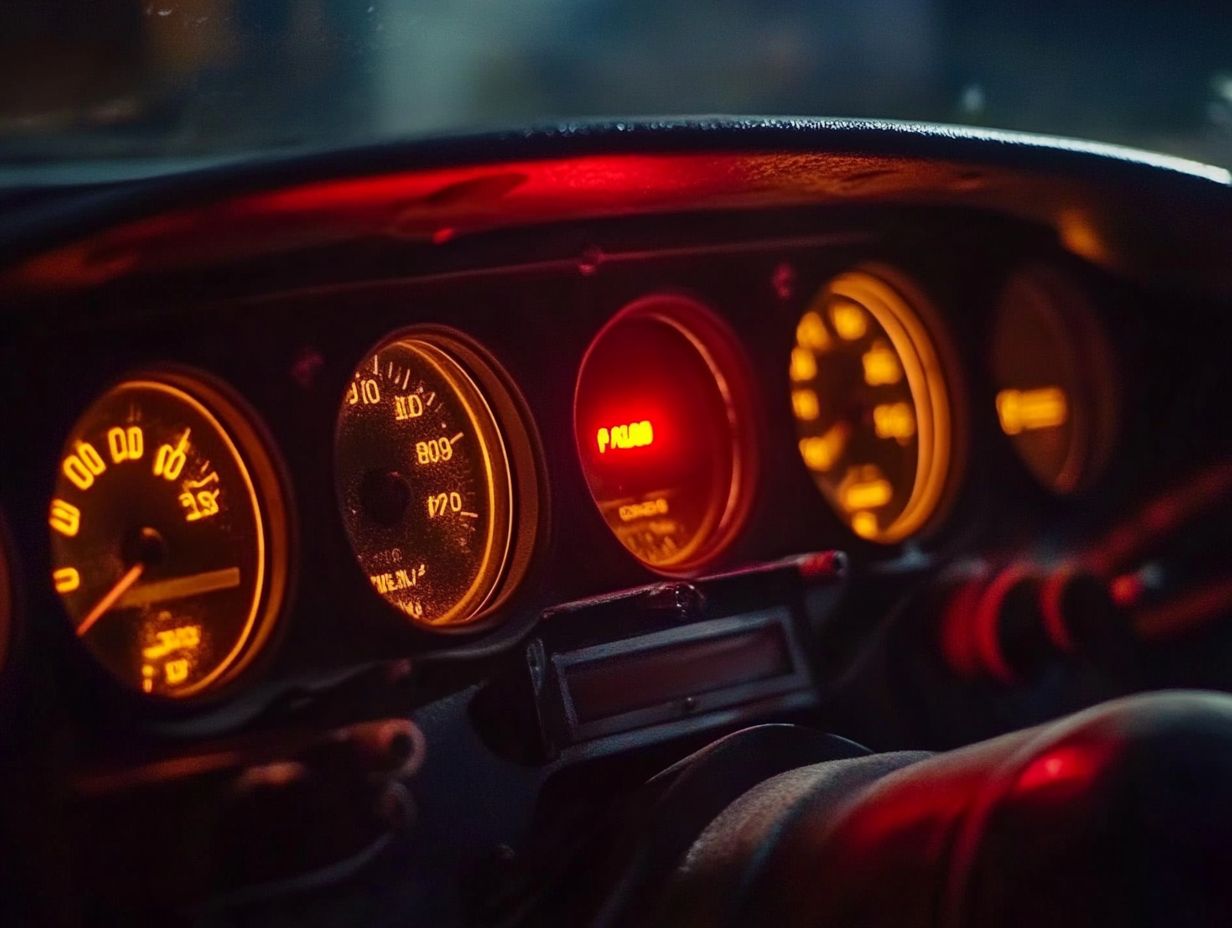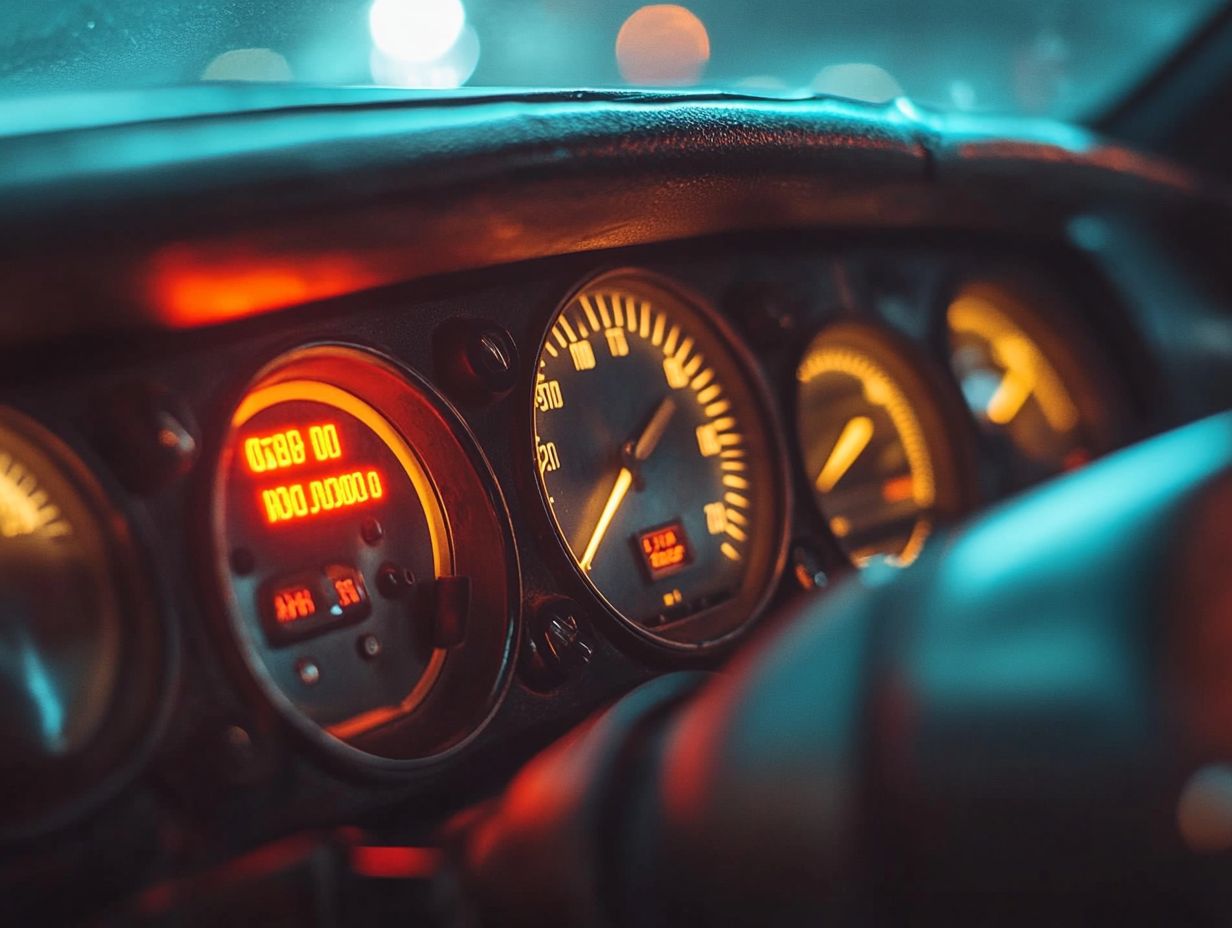What Does It Mean When Your Check Engine Light Flashes Then Goes Off?
The check engine light is one of those common signals that can really trip you up when it comes to your car. When it flashes and then turns off, it can leave you scratching your head, wondering what just happened and if you should be worried.
In this article, I’ll dive into what the check engine light really means, the possible reasons it might flash, and when it’s time to get some help. I’ll also talk about what you should do if that light goes off and how to keep future issues at bay with a little proper maintenance.
Whether you’re a seasoned car owner or just starting out, getting a handle on this important aspect of vehicle care can save you time, money, and a whole lot of stress.
Understanding the Check Engine Light

The check engine light is that little warning beacon on my dashboard, and it’s basically my car’s way of saying, “Hey, something might be off under the hood!” If I ignore it, I could end up facing some serious issues, like mechanical failure or some hefty repair bills later on.
It’s really important for me to know what that check engine light means, why it matters for my vehicle’s safety, and how it relates to the overall health of my car.
What it Indicates and Why it Matters
The check engine light can mean a whole range of things, from minor sensor hiccups to serious engine issues, so it’s definitely a red flag I pay attention to during vehicle inspections and diagnostics.
Getting to grips with what might be causing that warning light can really change how I approach car maintenance. For example, if there’s an issue with emission control, it could point to a problem with the catalytic converter or oxygen sensors, which can lead to more pollution and lower fuel efficiency.
Faulty sensors can also mess with engine performance, making my car hesitate or even stall. By recognizing the potential engine failures through the trouble codes that come with that check engine light, I can steer clear of bigger problems later on.
Being proactive and checking in with a mechanic when that light pops up helps me keep my car running safely and efficiently.
Possible Causes of a Flashing Check Engine Light
When I see that flashing check engine light, I know it usually means there’s something serious going on that I need to pay attention to right away. It could be engine performance issues or faulty sensors, and if I don’t take care of it quickly, it could lead to even more damage down the line.
Common Issues and Troubleshooting
Common issues that can make my check engine light flash include problems with the ignition system, the fuel system, or even those weird engine noises that hint at deeper mechanical problems.
When that light comes on, I know I need to start with a diagnostic scan to figure out the specific trouble codes from my car’s onboard computer. Those codes are like a treasure map, giving me clues about what’s going wrong—whether it’s a misfire in the ignition or some funky pressure in the fuel system.
I’ve learned that mechanics often recommend checking the spark plugs and ignition coils for wear and tear since those little guys can really impact performance. If my fuel filter is clogged, it could be blocking the flow, leading to similar headaches, so replacing it is usually a must to get everything back on track.
And if I hear any unusual engine noises, I know to check for loose parts or see if the oil levels need a little boost.
When to Be Concerned

I really need to pay attention when that check engine light starts blinking. It’s crucial because it can signal some serious problems that could affect both my driving safety and my vehicle’s performance.
Signs of a Serious Problem
I know I need to pay attention when I notice a sudden drop in engine performance, weird noises coming from under the hood, or any warning signals aside from the check engine light, like that “service engine soon” message.
I’ve learned that unusual vibrations or a lingering smell of burning oil can be big red flags that something isn’t right, often hinting at mechanical issues that could compromise safety and efficiency. If I see an uptick in exhaust smoke or my fuel efficiency takes a nosedive, I definitely don’t brush those off, since they could be signs of emissions control problems or other serious issues lurking beneath the surface.
It’s crucial for me to tackle these warning signs right away. Ignoring them could lead to bigger problems down the road, not to mention skyrocketing repair costs and a vehicle that just doesn’t perform as it should.
What to Do When the Light Goes Off
When the check engine light comes on, I usually feel a mix of relief and concern. It’s a sign that I need to pay attention to my vehicle’s maintenance.
I always take a moment to figure out what it means and think about any preventive steps I should take to keep everything running smoothly. It’s all about ensuring my car stays reliable for the long haul.
Next Steps and Maintenance Tips
Once that engine light goes off, I always make it a point to schedule a checkup with my mechanic. It’s just smart to ensure everything’s running smoothly and sticking to my vehicle’s maintenance schedule.
Taking this proactive step helps me catch any potential issues before they snowball, and it really extends the life of my car. After the checkup, I keep an eye on other important diagnostics like oil levels, fluid conditions, and brake functionality. Regular maintenance checks have become a part of my routine, allowing me to tackle minor problems before they turn into expensive repairs.
I also like to keep a log of service reminders to track when my car needs some TLC. It helps me make sure it stays in top shape and runs like a dream for years to come.
Preventing Future Check Engine Light Issues

I know that preventing future check engine light issues is crucial for keeping my vehicle running smoothly and lasting longer. It really comes down to staying committed to regular preventive maintenance and keeping an eye on essential systems, like coolant levels and battery health.
Proper Vehicle Maintenance and Care
I’ve learned that proper vehicle maintenance means regularly checking key components like oil pressure, the exhaust system, and fine-tuning the engine for optimal fuel efficiency.
If I let these critical aspects slide, I’m just asking for diminished performance and some hefty repair bills down the line. Routine inspections of the brake system—like pads and rotors—are a must for safety and responsiveness, which every driver needs.
I can’t forget about my tires either; keeping an eye on air pressure and tread depth not only helps with grip but also boosts fuel efficiency. Regularly swapping out air and fuel filters can seriously improve my engine’s performance, giving me that quick throttle response I love.
All these little practices not only help my vehicle last longer but also provide a smoother ride that makes driving comfortable and safe.
Frequently Asked Questions
What Does It Mean When Your Check Engine Light Flashes Then Goes Off?
When your check engine light flashes then goes off, it means that there is a problem with your vehicle’s engine that needs to be addressed immediately.
Why does my check engine light flash before turning off?

This flashing of the check engine light is a warning sign from your car’s computer system that there is a serious issue with the engine that needs to be checked and fixed.
Can I continue driving my car if the check engine light flashes and then goes off?
It is not recommended to continue driving your car if the check engine light is flashing. It is best to pull over and have the issue checked by a professional mechanic.
What are some common reasons for the check engine light to flash and then go off?
The most common reasons for the check engine light to flash and then go off include a misfiring engine, a faulty oxygen sensor, a loose gas cap, or a problem with the catalytic converter.
Is it safe to ignore a flashing check engine light?
No, it is not safe to ignore a flashing check engine light. Ignoring the warning could lead to further damage to your vehicle’s engine and potentially result in a more costly repair.
What should I do if the check engine light keeps flashing?
If the check engine light continues to flash, it is important to have your car checked by a mechanic as soon as possible to prevent any potential damage to your engine. Ignoring the warning could also result in your car failing an emissions test.
